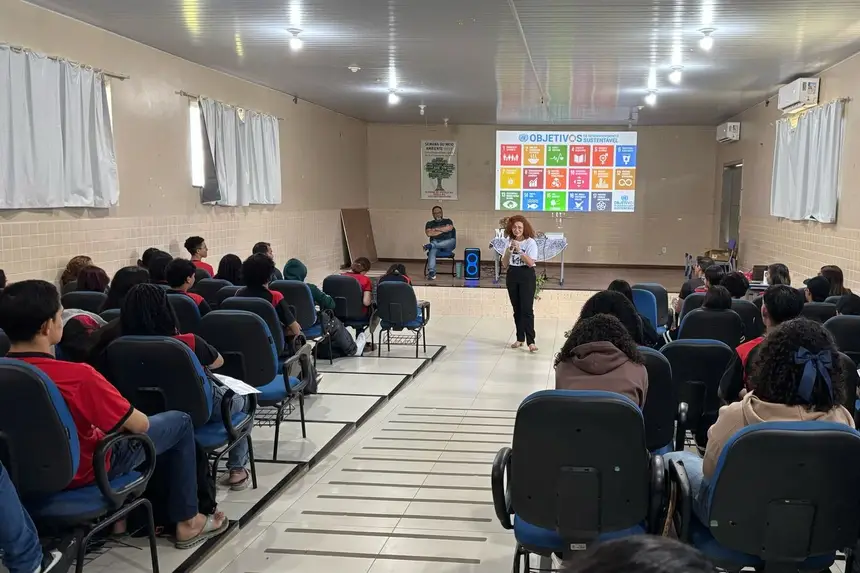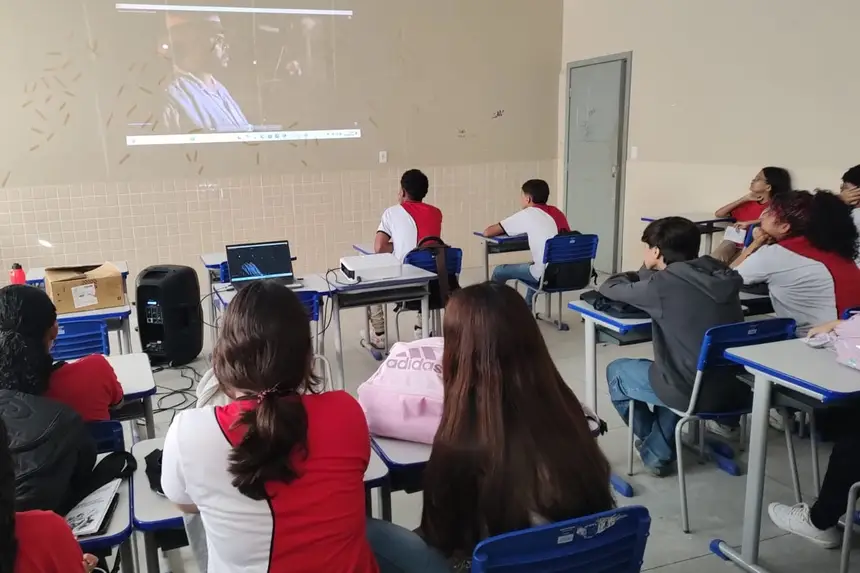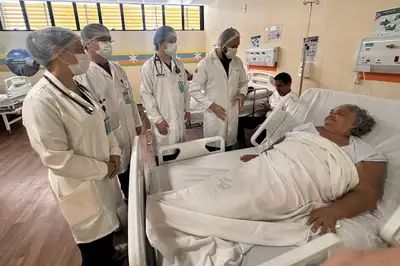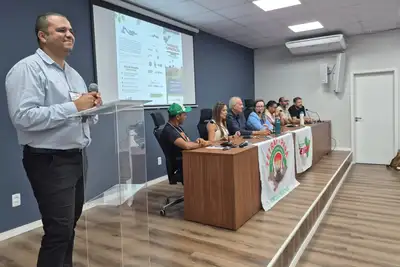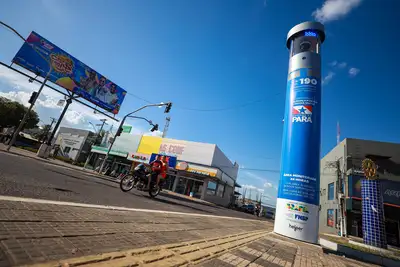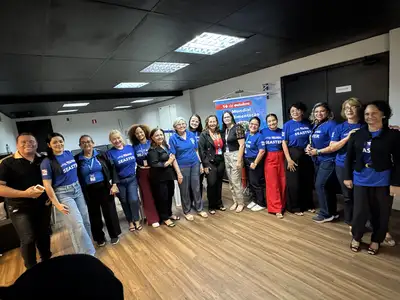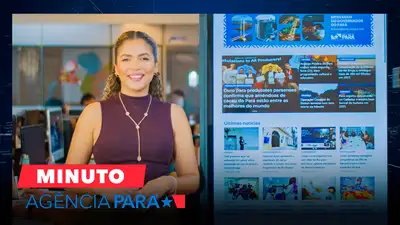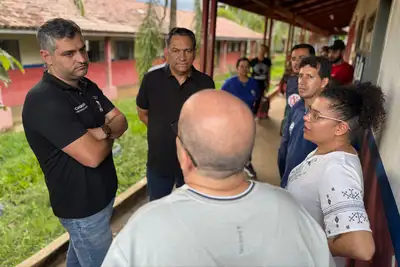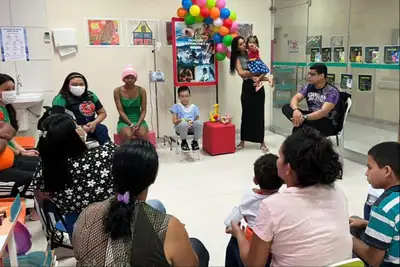Programming on the environment engages the Manoel Leite Carneiro School in Belém
With the theme "The role of the school in the pursuit of sustainability", the initiative, which runs until next Friday, includes lectures, discussion circles, and documentary screenings
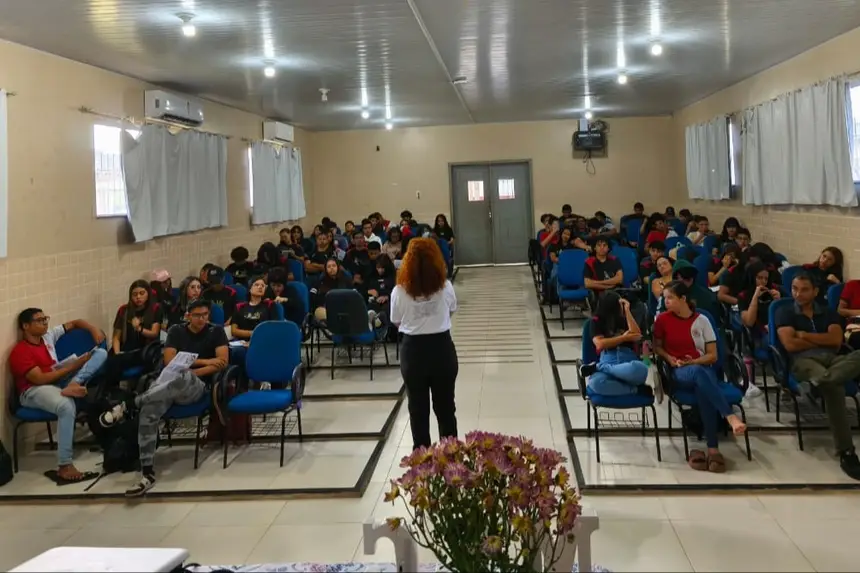
Continuing the celebrations of World Environment Day, celebrated on June 5, the Manoel Leite Carneiro State High School in Belém is promoting the 'Environment Week 2025', a special program aligned with the global debates of COP30. With the theme "The role of the school in the pursuit of sustainability", the initiative includes lectures, discussion circles, and documentary screenings on climate change, forestability, environmental unionism, and the socio-environmental impacts of the capitalist production model in the Amazon. The program started this Monday (9) and runs until Friday (13).
During the 'Environment Week', students and the community will have the opportunity to discuss topics that directly impact our lives, such as climate vulnerability, climate apartheid, the culture of disposability, selective collection, recycling, solid waste treatment, conscious consumption versus consumerism, and the fate of products after their use. More than just informing, the initiative aims to awaken a keen eye for climate justice and the preservation of the planet, especially at such a delicate moment for the environment.
"What caught my attention the most in the program were the data about COP30 and how the climate emergency mainly affects peripheral populations. I think we can do a lot, but it's complicated because everyone needs to collaborate. Pollution from companies is one of the causes. To improve, we should consume less, help with garbage collection, not throw trash in the street, plant trees, and demand basic actions from the government. These attitudes already help a lot," said Priscila Ferreira de Sousa, a 3rd-year high school student.
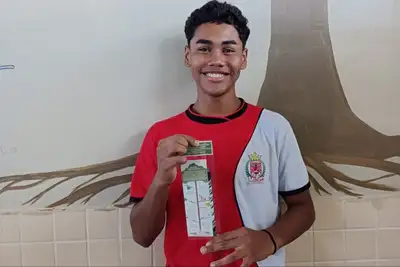
Student Paulo Sérgio, from the 1st year of high school, watched the film about Chico Mendes and reflected on the importance of the environmental struggle. "Chico Mendes was an activist who defended the rights of rubber tappers and the preservation of the Amazon. What caught my attention the most was deforestation and the disrespect for laws. Even with limitations, we must protect the environment, plant trees, and hold politicians accountable. I am 15 years old and do not vote yet, but I will remember this film when I vote. It is important to know other stories of those who also fought and died for this cause," says the student.
For the school director, David Cordeiro, it is essential for students to understand their role in decisions regarding public policies aimed at climate balance. "Wage workers, indigenous peoples, quilombolas, and residents of urban peripheries are the most affected by climate change. We want the school community to reflect on the role of those who have access to environmental education and on the democratic paths we can take with our natural resources," highlights the director.
With the mandatory Environmental Education in the basic education curriculum, the Manoel Leite Carneiro School, as a full-time educational institution, has been developing elective subjects and sustainable projects in the diversified part of the new high school curriculum. Among the practical actions are the production of soap from used cooking oil, medicinal garden, suspended garden with recycled PVC pipes, and collection and use of rainwater.



